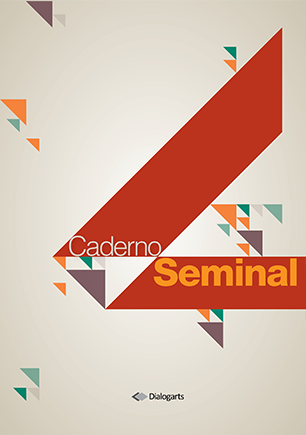POR UMA POÉTICA DO RUÍDO NAS NARRATIVAS AFROCENTRADAS: UMA LEITURA DE TEXACO, DE PATRICK CHAMOISEAU
Conteúdo do artigo principal
Resumo
Este artigo se propõe a discutir o conceito de “poética do ruído” como um dispositivo teórico para pensar expressões literárias que conferem voz e visibilidade a sujeitos historicamente silenciados e invisibilizados pelos processos coloniais e de
racialização, bem como suas reverberações nas estruturas socioculturais da contemporaneidade. Para isso, são mobilizados autores como Molefi Kete Asante (2009), para pensar o imperativo do afrocentramento; Achille Mbembe (2018), com a
noção da “autoinscrição”; Quince Duncan (2006), com a noção de “afrorrealismo”; e Édouard Glissant (2005; 2021), com as noções de “poética da diversidade” e de “caos mundo”. Parte-se, ainda, do entendimento da dimensão inerentemente política da literatura, tal como sistematizado por Jacques Rancière (1995; 2016). É, pois, pautando-nos por essas perspectivas teóricas que realizamos uma leitura do romance Texaco, do escritor martinicano Patrick Chamoiseau (1993), guiados pela seguinte
questão: de que maneira a visita da literatura à história e à memória evidencia narrativas e perspectivas tradicionalmente invisibilizadas e silenciadas, possibilitando-nos pensar no conceito de “poética do ruído” como uma alternativa epistemológica para refletir sobre o passado e significar o presente? Sugerimos, por fim, que o discurso literário afrodiaspórico erige-se como uma alternativa epistemológica ao conferir ao ruído de sujeitos históricos silenciados um lugar de visibilidade, ressignificando as narrativas sobre o passado e intervindo na distribuição da palavra e daquilo que é dizível.
Downloads
Detalhes do artigo
Ao submeter seus manuscritos para publicação em nossos periódicos, os autores concordam com os seguintes termos:
a. Autores mantêm os direitos autorais e concedem à revista o direito de primeira publicação, com o trabalho simultaneamente licenciado sob a Creative Commons Attribution License, que permite o compartilhamento do trabalho com reconhecimento de sua autoria e da publicação inicial neste periódico.
b. Autores têm autorização para assumir contratos adicionais separadamente, para distribuição não exclusiva da versão do trabalho publicada neste periódico (ex.: publicar em repositório institucional ou como capítulo de livro), com reconhecimento de sua autoria e da publicação inicial neste periódico.
c. Autores têm permissão e são estimulados a publicar e distribuir seu trabalho online (ex.: em repositórios institucionais ou na sua página pessoal) antes ou durante o processo editorial, já que isso pode gerar alterações produtivas, bem como aumentar o impacto e a citação do trabalho publicado.

